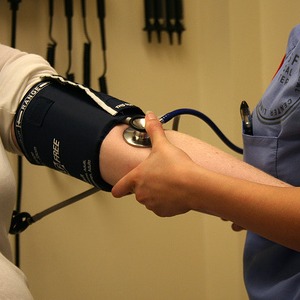Poverty: A Health and Healthcare Issue

![]() By Alexandra Morbitzer, Being Latino
By Alexandra Morbitzer, Being Latino
According to 2010 statistics, there is currently just over 15% of Americans living in poverty, although U.S. Latinos are at a much higher rate with over 25% of the total population. The official money mark for a single person to be considered living in poverty, is income less than $11,170.
 Of all the ill-effects poverty has on someone living in it, health is up at the top of the list. A 2010 Columbia University study concluded that living in poverty is worse on someone’s health than smoking, obesity or binge drinking. From the time a person is developing in the mother’s womb through their entire lifetime, living in poverty affects whether or not a person will find optimum health. If a mother is unable to access prenatal care or was completely unhealthy prior to getting pregnant, that baby will not be able to develop to its full potential, as consistent care and good nutrition are paramount.
Of all the ill-effects poverty has on someone living in it, health is up at the top of the list. A 2010 Columbia University study concluded that living in poverty is worse on someone’s health than smoking, obesity or binge drinking. From the time a person is developing in the mother’s womb through their entire lifetime, living in poverty affects whether or not a person will find optimum health. If a mother is unable to access prenatal care or was completely unhealthy prior to getting pregnant, that baby will not be able to develop to its full potential, as consistent care and good nutrition are paramount.
As a person living in poverty continues to grow and live, they still continue to face obstacles to optimum health. Mothers in this sort of financial situation are often unable to find quality food of high nutritional value and are also challenged at finding quality medical care, so common illnesses tend to be more serious by the time care is actually sought. Many families can’t afford the medicine they are prescribed to treat their ailments also.
Those living in poverty also experience much higher levels of stress. Because this stress is prolonged, it gives way to conditions like obesity and mental health issues. Furthermore, coupled with the stress and the lack of nutritious foods, those in poverty are more likely to have diabetes and other lifestyle related illnesses. There is also a higher prevalence of dental issues. Left untreated, cavities and gum disease can lead to heart disease and other serious physical ailments.
Despite the fact that poverty negatively impacts a person’s overall health, it is rarely talked about as a health issue, but instead as a socioeconomic one. With food products that are high in fillers and low on nutrition so cheap, quality medical treatments so expensive and mental health treatment hard to find, poverty most certainly is a health issue. Without making changes that will enable people to break the poverty cycle, these preventable health conditions will find a way into the future and into future generations.
This article was first published in Being Latino.
Alexandra Morbitzer is a Social and Traditional Media Specialist at PR Newswire.
[Photo by bryanrmason]
